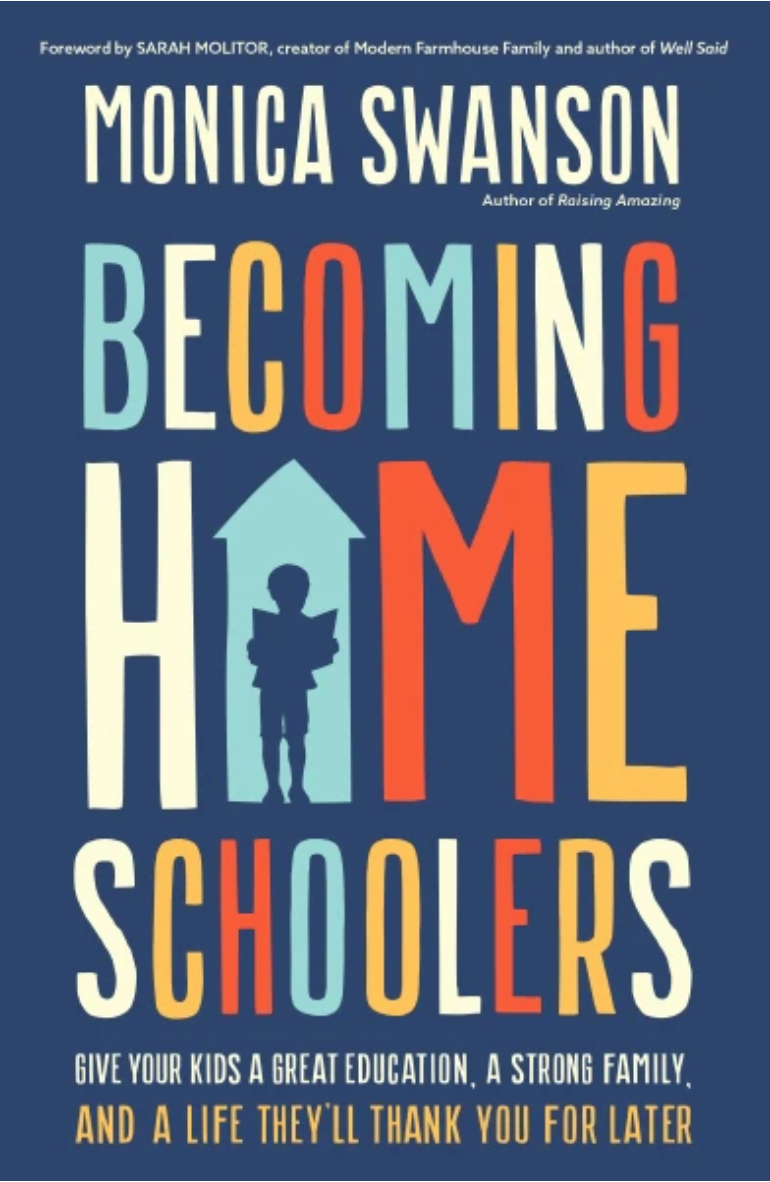As homeschoolers, we do it all. We teach all the subjects, we do all the housekeeping, and we keep all the records. Sometimes, however, we can't do it all. Learning to balance homeschooling with being a SAHM is hard work. I've shared how I mastered it in my blog “Master the Art of Balancing SAHM and Christian Homeschooling Roles.”
Maybe there is a subject that you have a hard time teaching. Or perhaps you just don't have the resources to teach a subject properly. Sometimes, your child just needs time with other kids. Whatever the reason, homeschoolers will often join a co-op.
Co-ops are usually parent-run schools that meet anywhere from once a week to every day. They are customarily established to lessen the burden of teaching all the subjects or to provide a means of socialization. Some co-ops meet online, but most will be a local group that you meet in person. If you are in the market for a co-op, first you have to know what you're looking for and why. The purpose of this post is to look at the possible “whys” and then teach you what to look for.
To learn all about how to get started homeschooling, including choosing a co-op, sign up for my course Parent's Guide to Homeschooling!
Know Your Educational Philosophy
Homeschooling is a deeply personal and customizable educational journey. As a homeschooling parent, you've likely spent time carefully crafting your family's educational philosophy. You've considered your values, teaching style, and educational goals, and you've chosen to homeschool because it aligns with your vision for your child's education.
When it comes to selecting the right homeschool co-op for your family, you'll be using the same educational philosophy. A co-op should complement and enhance your homeschooling approach, rather than clash with it. Read my post about what factors shape our homeschooling choice. Here are some key considerations:
Educational Approach Compatibility
Every homeschooling family has its unique approach to education. Some may lean toward classical education with a strong emphasis on literature and history, while others may embrace a more child-led or unschooling approach.
As you search for the right co-op, consider how well its educational philosophy aligns with your own. Some co-ops may specialize in particular methods, while others may offer a flexible curriculum that accommodates various approaches. It's essential to find a co-op that respects your chosen approach and offers resources, classes, or activities that support your teaching style.
Values and Beliefs
Education isn't just about academics; it's also about instilling values and beliefs. If your family's educational journey includes specific religious or moral convictions, you'll want to find a co-op that shares those principles. Faith-based co-ops can be a wonderful choice for families looking to integrate their religious beliefs into their children's education.
Conversely, secular co-ops may be better suited to families who wish to keep religion separate from their academic pursuits. Your family's values and beliefs should be respected and supported by the co-op you choose.
Consider Your Child's Needs
Your child's age, grade level, and learning style are crucial factors to consider when choosing the right homeschool co-op. Each child is unique, and a co-op that meets the needs of one child may not necessarily be the best fit for another. Here's how to evaluate your child's needs:
Age and Grade Level
Consider the age and grade level of your child when choosing a co-op. Some co-ops cater primarily to specific age groups, while others offer a wide range of classes for children of all ages. For younger children, you may want to find a co-op with activities tailored to their developmental stage. In contrast, for high schoolers, look for co-ops that offer advanced courses or college preparation programs.
Learning Style
Every child has a unique learning style. Some children thrive in a structured and organized environment, while others flourish in a more relaxed, hands-on approach. When evaluating a co-op, pay attention to its teaching methods and whether they align with your child's learning style. Some co-ops may offer various teaching approaches, allowing you to choose what suits your child best.
Bookroo's mission is to enable and empower parents to build their children's book collections in an affordable and exciting way through curated monthly book deliveries. We send beautiful collection editions of our favorite books from publishers, that not only will families want to read again and again, but also look stunning on your shelf. Book boxes are geared for ages 0-12.
Functional Needs Support
If your child has functional needs, it's essential to find a co-op that can accommodate their requirements. Some co-ops specialize in providing support for children with disabilities or learning differences. These co-ops often have experienced teachers and resources to help your child succeed. Be sure to inquire about the co-op's approach to functional needs education and whether it aligns with your child's needs.
Extracurricular Interests
Consider your child's extracurricular interests and talents. Some co-ops offer specialized classes or activities in areas like the arts, music, sports, or science. If your child has a particular passion, look for a co-op that can help nurture and develop those interests.
Socialization Needs
Socialization is a significant aspect of a co-op. Evaluate whether the co-op provides ample opportunities for your child to interact with peers. Social activities and group projects can play a crucial role in a child's development and may be a deciding factor in your choice of a co-op.
By considering your child's age, grade level, learning style, functional needs, interests, and socialization needs, you can narrow down your options and select a homeschool co-op that best serves your child's educational journey.

Location and Accessibility
The location of your chosen homeschool co-op can have a significant impact on your overall homeschooling experience. It's essential to carefully consider the geographical aspect of the co-op and how it fits into your daily life. Here are some key considerations:
Proximity to Your Home
One of the most important factors when selecting a co-op is its proximity to your home. Think about the travel time, distance, and accessibility of the co-op's meeting location. A co-op that's conveniently located can make your homeschooling journey more manageable, especially if you have multiple children to transport.
Meeting Schedule and Frequency
Different co-ops have various meeting schedules. Some may meet weekly, while others meet bi-weekly or monthly. Consider which schedule aligns best with your family's commitments and your child's academic needs. A more frequent co-op may provide additional learning opportunities but could also require a more substantial time commitment.
Ivy Kids Kits is an award winning and well-established subscription box company for children ages 3-8. Ivy Kids creates monthly book-inspired, activity packed educational kits. Each Ivy Kids kit includes a carefully selected, highly rated children's book and over 12 fun, creative, and unique hands-on activities that promote the development of math, science, literacy, engineering, and art skills through play and exploration. Inside an Ivy Kids kit there are board games, arts and crafts, science experiments, projects, math manipulatives, story characters and so much more. Everything you need to read, play, create and learn is included in the kit and conveniently delivered monthly!
Transportation and Logistics
Think about how you plan to transport your child to the co-op. If the co-op is far from your home, this may involve a longer commute and potential logistical challenges. Consider carpooling with other families or explore public transportation options if necessary.
Community Impact
The location of the co-op may also affect the sense of community and your child's ability to interact with co-op friends outside of co-op hours. A co-op in close proximity to other homeschooling families or local parks can provide additional opportunities for socialization and extracurricular activities.
Flexibility in Meeting Location
Some co-ops offer flexibility in meeting locations, allowing for a combination of in-person and online classes. This can be a valuable option if you live in an area with limited co-op choices or if your family's circumstances change.
When considering the location and accessibility of a homeschool co-op, it's essential to find a balance that aligns with your family's needs and schedule. A co-op that is easily accessible and suits your logistical requirements can contribute to a smoother homeschooling experience.
Conclusion
In this blog post, we've explored crucial factors to consider when choosing the right homeschool co-op for your family. We've emphasized the importance of aligning your educational philosophy with the co-op's approach, understanding your child's unique needs, and carefully evaluating the location and accessibility of the co-op. There is no need to overload yourself like I did when I first started homeschooling. Read my blog about the 5 mistakes I made so that you can avoid them too.
Now that we've covered the first three sections of our guide, it's time to delve into more essential considerations. In Part 2 of this series, we will explore topics such as curriculum and teaching style, membership costs and fees, and the co-op's values and beliefs. We will provide valuable insights to help you make an informed decision and select a homeschool co-op that enhances your homeschooling journey.
Stay tuned for Part 2, where we'll continue our exploration of the factors that will guide you in choosing the perfect homeschool co-op for your family. Until then, remember that your choice of a homeschool co-op should align with your values, your child's educational needs, and your vision for a successful homeschooling experience.








